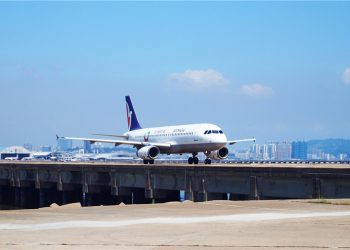Three US-based subsidiaries of Chinese state-owned construction giant China State Construction Engineering have filed the opening brief in their appeal against a recent decision by the New York State Supreme Court that found it engaged in “many acts of fraud” in relation to Bahamas integrated resort Baha Mar.
The brief was filed with the Appellate Division of the New York State Supreme Court on 30 December 2024 by CCA Bahamas Ltd, CSCEC Bahamas Ltd and CCA Construction Inc and outlines what the entities describe as fundamental errors made by the trial court that require reversal on appeal.
As previously reported by Inside Asian Gaming, the trial court had found the entities liable to pay BML Properties – the original developer of Baha Mar – a total of US$1.6 billion, comprising BML Properties’ entire US$845 million original investment plus interest dating back to May 2014.
The case revolves around BML Properties’ assertion that the entities breached an Investors’ Agreement (IA) by failing to meet construction deadlines and forcing the collapse of the project in order to enrich itself and ensure Chinese interests claimed control.
CCA’s appeal questions the validity of including the three separate entities in the lawsuit, stating that while CSCEC Bahamas was a minority investor and party to the IA, CCAB Bahamas was only construction manager and CCA Construction a corporate affiliate with neither an investor or party to the IA.
More importantly, however, the appeal claims that BML Properties brought about its own demise by “bombing” its own deliverables and failing to meet its own responsibilities in ensuring Baha Mar could open on its originally scheduled opening date of 27 March 2015.
Specifically, the entities claim that BML Properties has previously acknowledged that CCA Bahamas had fully intended to meet the 27 March 2015 deadline and came “very, very close to doing so”, and that even if Baha Mar opened on time it would have “have operated at a loss for years and Plaintiff could never have repaid the billions BML owed the bank.”
The entities also claim the trial court “rewrote” the IA to make CCA Bahamas a party and “to create timeline and staffing obligations that nowhere appear in the IA.”
The brief reads, “BML ‘bombed’ its own deliverables for the opening, including on construction outside CCAB’s scope, as BML’s [President Tom] Dunlap stated in an April 2015 email. Dunlap admitted his team failed to complete amenities ‘mission-critical’ to opening, including the nightclub, restaurants, and spa.”
In a statement provided to IAG, a spokesperson for the defendants said, “As our appeal makes clear, the trial court disregarded black-letter New York law and ignored indisputable evidence that BML Properties’ gross mismanagement, hundreds of millions of dollars in overspending and disastrous unilateral decision to put BML in bankruptcy drove the Baha Mar project into the ground, leaving a rash of unpaid debts to local subcontractors, vendors and the Bahamian government and ultimately resulting in BML’s liquidation by the Bahamian Supreme Court. The fact that CCA Bahamas completed 97% of the project by the agreed deadline evidenced its good faith. The judgment suffers from numerous, significant legal errors and should be reversed in its entirety, as we believe it will be.”
BML Properties filed for bankruptcy in June 2015 after Baha Mar missed its opening deadline, with the project handed over to a liquidator before the Bahamian government announced it had reached a deal with CCA to resume construction while it looked for a buyer, later revealed to be Hong Kong jewelry giant Chow Tai Fook Enterprises.
Chow Tai Fook, controlled by the Cheng family, also holds interests in Australia’s Star Entertainment Group and Vietnam’s Hoiana, and has links to Macau concessionaire SJM via chairman Henry Cheng’s 10% stake in STDM.


































